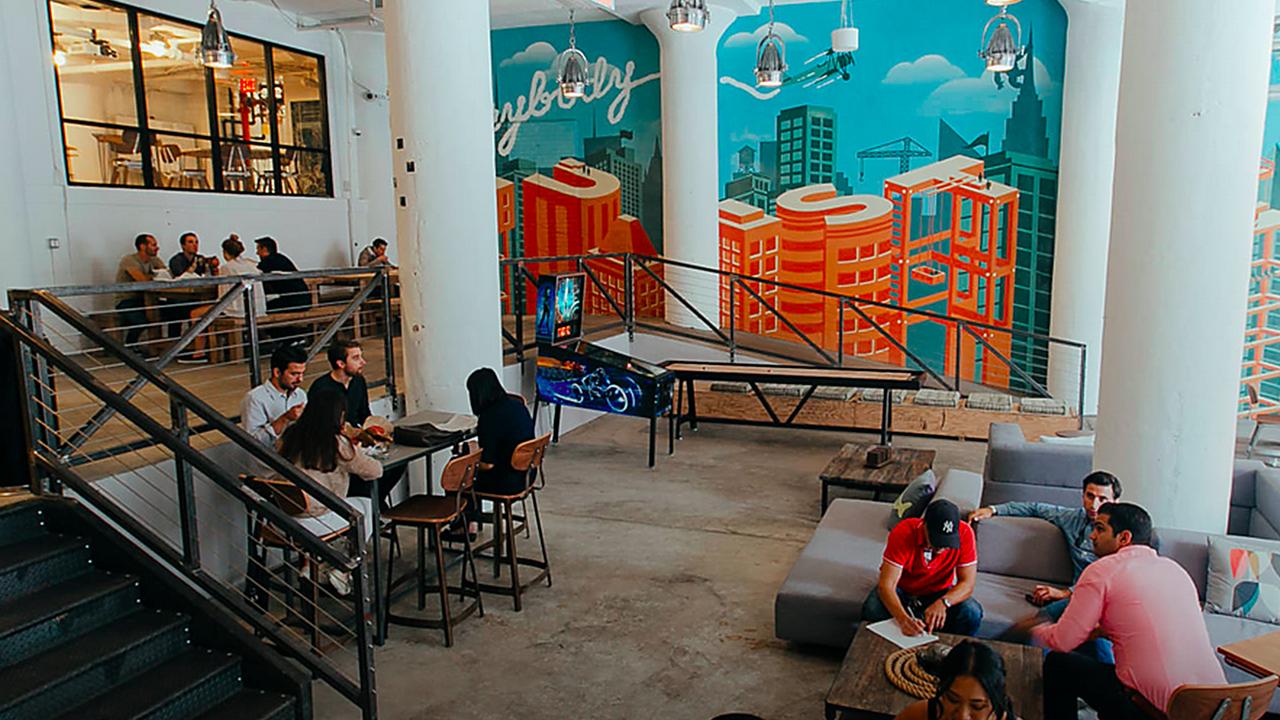From gays to Nerdistan, authors point the write way to success
A MEASURE known as the "gay index", which claims to assess cultural tolerance across cities, and a controversial theory linking crime rates and abortions are among the diverse theories published by demographers and theorists in the recent years.
A MEASURE known as the "gay index", which claims to assess cultural tolerance across cities, and a controversial theory linking crime rates and abortions are among the diverse theories published by demographers and theorists in the recent years.
If you are interested in demographics and trend forecasting, there are several books that you should consider.
In this column I am focused on international works, but at a future date I'll review what I consider to be worthy Australian works. I have chosen books not just because I think the authors have something interesting to say but also because what they have to say has relevance to Australia.
Perhaps the most influential in terms of its impact on modern urban planning is US academic Richard Florida's Rise of the Creative Class, first published in 2002. There have been sequels and updates over the last six years but essentially his ideas were best and most freshly articulated in his original work.
Florida advances the notion that economic development and prosperity are closely associated with the scale and concentration of what he describes as creative workers in a city.
This includes not just the arty-farty set of writers and actors but also -- and this was his real genius -- computer programmers and other such "creatives' associated with the rise of new technologies.
Florida argues that tolerant and creative communities attract the type of people who have the intellectual wherewithal to generate wealth.
Somewhat controversially, Florida uses a "gay index" of cities to measure tolerance.
Cities like San Francisco and Austin (Texas) rank as highly creative; steel towns like Pennsylvania's Pittsburgh score poorly. In an Australian context this means that arty Melbourne would rank above steel town Wollongong.
But if the concentration of truly creative types was a surefire way to economic prosperity, then surely Byron Bay would be the richest place in Australia.
Florida has been labelled elitist by some, but by others his work is used as the ideological foundation for urban consolidation. Florida is undoubtedly a pin-up for the urban planner set that delivered documents like Melbourne 2030 and its counterparts in Sydney, Brisbane, Perth and Adelaide.
Here is the thinking that a city is enhanced by the attraction of "creative" types who survive best amid the funk and frisson of dense inner-city environments.
Providing an opposing view to Florida is another US academic, Joel Kotkin, whose book The New Geography (2000) argues the case for suburbia.
Kotkin points out that most Americans live healthy, happy and meaningful lives in the suburbs. He is critical, however, of aspects of suburban life and especially parts of cities like San Francisco's Greater Bay Area, where he laments lives that pivot around the suburban office park.
Kotkin points out that many hi-tech workers live and work in suburbs and are so engrossed in their work that they disengage from the local community.
Wittily, he describes these hi-tech enclaves as Nerdistan. My research drawing on the results of the 2001 census confirmed that the best example of an Australian Nerdistan was in fact the Sydney suburb of Ryde.
More popular than the work of either Kotkin or Florida is Freakonomics (2005) by US authors Steve Levitt and Stephen Dubner. Here is "out there" thinking for the numerically minded. Perhaps the best example of Levitt and Dubner's thesis is their argument that a drop in the crime rate in the 1990s was linked to an acceleration in abortion 20 years earlier -- the argument being that candidate foetuses for abortion have a better than average probability of engaging in criminal behaviour as young adults.
The authors also complete an entertaining analysis of the correlation between the selection of Christian names and the probability that a person with that name will end up in a predetermined socio-economic class.
Put simply, this is the argument that Rupert is a name for rich kids, whereas anyone named Kaylee is more or less assured of remaining at the poorer end of life's income spectrum.
However, I think that by far the most influential book in this genre over the last few years has been Thomas Friedman's The World is Flat (2005).
Friedman is a journalist with The New York Times who argues that a convergence of geopolitical and technological change is reshaping the way global business is conducted.
He cites the collapse of communism and the opening-up of China and India as key events that have suddenly allowed jobs or components of jobs to be completed at a lesser cost in the developing world.
US and Australian businesses outsourcing either the whole or part of the manufacturing process to China and call centre work to India are good examples of how a truly "flat world" operates.
Indeed, the more recent expansion of the EU to include Eastern European nations and the development of sovereign states in the Middle East mean that there is every reason to expect Friedman's ideas to remain relevant for years to come.
There is a common denominator between all of these books. They articulate new ideas. Florida's creative class promises a new way to stimulate prosperity. Kotkin's spirited defence of suburbia is at odds with the thinking of urban consolidationists. And Freakonomics is just plain fearless. Who else would dare posit that aborted foetuses might otherwise contribute to the crime rate?
And as for Friedman, the new world order most surely needed a big and bold interpretation such as his statement that "the world is flat".
But another common denominator of these ideas is that they belong to the first decade of the 21st century.
What will be the bold thinking of the new decade in a world emerging from the sub-prime-triggered slowdown of the latter years of this decade?
I suspect that the fresh thought of the new decade will link globalisation with religious affiliation, technology and possibly demographic change. The question is where will this thinking come from and how might it shape your business.
Bernard Salt is a Partner with KPMG; bsalt@kpmg.com.au


